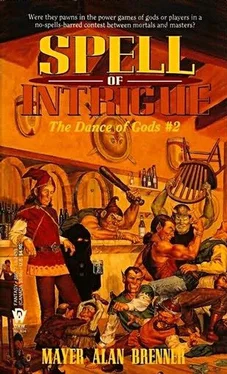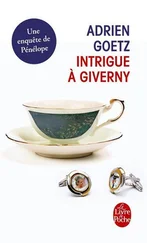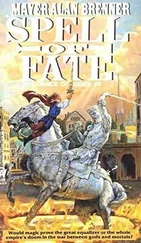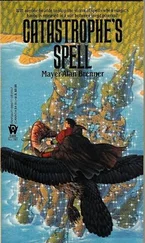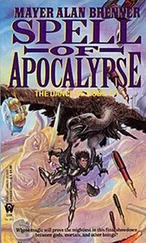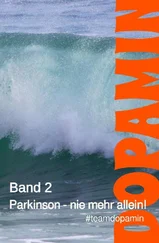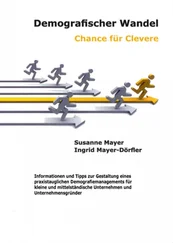Julio fell silent and cocked his head attentively, panting freely from his unexpected sprint. “I fear you might as well desist; this functionary is firmly dedicated to his sacred orders, whatever they really are and whomever they are really from. I’d best go along with him and then try to tangle this thing apart. You round up old Snee and meet us at the prison - I assume we’re going to the barbican in the Hall?”
“Aye, sir,” said the sergeant.
“You meet us at the prison, then, with the appropriate writs. Eelmon will escort us there.”
“Yes, Meester Groot,” said Eelmon, the house servant, from inside the open door. Julio took off down the street toward the offices of Snee, the principal lawyer for Haalsen Traders, and Groot fell in with the police as they marched off together. The door slammed behind them and Eelmon reappeared, hefting a hastily-stuffed carpetbag. Groot watched the familiar streets go past, observing familiar faces turn to stare at the party in astonishment (as much for the spectacle of himself abroad in his dressing gown, he thought sourly, as for the company he was keeping, and for the fact that he’d been clapped in irons), and even considered a bow to his audience as they crossed the Bridge of Bronze over the Green Canal. To their left at the top of the bridge, down the Green Canal ‘s navigation channel, the River Oolvaan proper was visible with its usual clutter of vessels. The south bank of the Green Canal was lined chock-a-block with its own docks and warehouses; in fact, Groot’s own docks and warehouses, or a major complex of them at any rate. One ship was presently tied up, the ocean-going Fair Market Value , due to finish her loading by noon for a run eastward along the coast. Instead of the expected clamor of teamsters, crane operators, stevedores, and sailors, though, the dock was eerily quiet and virtually empty. But who were those people lined up in formation on the wharf, and standing guard in front of the warehouse door?
Then Groot made sense of the scene, in the moment before they trod down the descending slope of the high-arched bridge and were lost again in the midst of the streets. More police troops had just shown up here, at the warehouse. The place was being shut down. What was going on?
Groot was not only a leading businessman in Oolsmouth, he took pains to be a good citizen as well. It was the soul of good business practice to participate in the affairs of one’s community, to secure a local power base, and to become and remain generally well-connected; consequently, Groot had gone out of his way to do all these things. The principal reason behind such a philosophy, of course, is to make sure that one can sense even subtle changes in the local climate and can position one’s self to take the best advantage of them, not to mention getting advance notification of any overtly hostile moves that may be brewing aimed at one’s own operations. What had gone wrong here? Groot hadn’t heard a whisper of warning. How could he have been taken unawares, and how could anyone else have acquired (without his noticing it) the political strength to move against him so blatantly?
There was the barest possibility that some mistake was being made; that a confusion of identity had occurred, or that someone had gone off half-cocked. The move felt too well-planned for that, though, what with his arrest and the simultaneous descent upon his commercial operations. If a mistake had been made, it would all shake out in due course anyway. Viewed from another angle, however, Groot thought with some anticipatory satisfaction that a mistake certainly had been made. By the time he was finished with its authors, whoever was behind this would fully appreciate, to their woe, just how big a mistake it had been. Groot had resources that even a well-planned raid against him would be unlikely to reveal. He also had friends.
Only what if this offensive wasn’t really aimed at Groot at all, but through him at his friends? From the increased level of activity he’d been hearing about from Max and Shaa there was obviously something of significant import underway. And the boat on the Oolvaan would be due in Oolsmouth port soon ...
Ahead of them, a wide splash of sunlit lawn appeared, a spouting fountain at its center. The street they were on had widened into a boulevard, one of the seven that radiated out from the Plaza of the Bureaucrats, as Groot referred to it, and now the boulevard opened into the Plaza itself. The fountain in the civic park in the plaza’s center contained several statues arranged in an interlocking tableau of local symbols - a heroic twin-masted ship with two ranks of churning rowers, a messy spiral of storm clouds and thunderbolts looming over the ship and dripping water on its canted deck, an out-of-scale fisherman swinging a full net of carp with one hand and waving a gaffed squid with the other, and so forth. A small gang of urchins were splashing around under the obligatory breaching leviathan, and they, too, paused in their free-for-all to gawk as Groot was led around the fountain and toward the block-long Hall of the People on the other side of the plaza.
Groot had been agitating sarcastically if less than seriously at Council meetings for years, when nothing else interesting was up for discussion (which in truth was most of the time), to have the name of the Hall of the People changed, since as they all knew the People had very little to do with anything significant. It was also a thoroughly unaesthetic name, the sort of name only a bureaucrat could love. Although Groot’s proposals usually brought a round of nods and approving “hurrumphs” from around the Council chamber, nothing had ever come of it. The people of Oolsmouth and the surrounding countryside, which also fell under the territory of Oolsmouth Free State, while understanding that there was not in truth very much they could do to influence the course of government, notwithstanding the constant rhetoric concerning The Will of the People and their Elected Representatives, were not (for the most part) too unhappy with the general state of affairs, especially when they reflected back on the comparison with the earlier autocratic regime. It was true that the Council was filled out by the heads of the local trade guilds, a smattering of directly elected spokespersons, and even a few token nonhumans, but the unmistakable balance of control rested with the leading merchants and their proxies. All in all, though, the business interests tended to pursue a freewheeling policy of laissez-faire leavened with civic social benefits that were rather a bit on the paternalistic side.
The People might not have fully appropriate representation on the Council, but everyone was aware that they had risen in the past and could, of course, do so again. The truth was that the merchant class was not really that much more powerful than the population at large, and since there were more working people than merchant bourgeois things tended to even out. As a city based primarily on commerce rather than on manufacturing or the exploitation of natural resources, or on the production of goods and services for local consumption. the economy did not support the growth of an oligarchy or even a dramatic shift of actual power to one group or another; as a result, the basic social contract had remained in large part intact. That being so, the People as a whole figured they had better things to do than waste time grubbing around in the Council. Watching the Council in its various gyrations was a popular spectator sport, though, since the merchants liked to use it as just another arena for their typically cutthroat competition.
The Hall of the People, even for a powerful city on the leading edge of the current wave of prosperity, was an unquestionable civic extravagance. There was no doubt about its symbolism - here was a city of wealth and stability, with a government comfortable and entrenched enough to grant itself the luxury of municipal monumentalism. Even so, it was clear that the Hall of the People would not exist, at least in its present form, without a generous philanthropic contribution from the past.
Читать дальше
